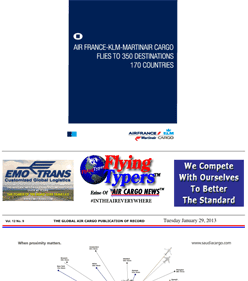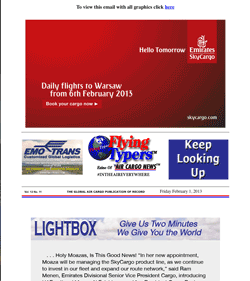
(L-R)
IBS’
Mathew
M.
Baby,
Vice
President
and
Head
of
Airline
Cargo
Services;
Sankalp
Saxena,
President
&
Head
of
Aviation
Operations
Services;
and
V.
K.
Mathews,
Founder
&
Executive
Chairman,
with
Hans-Guenther
Loeffler,
Acting
Consul
General,
German
Consulate,
Bangalore;
Lufthansa
Cargo’s
Dr.
Roland
Schütz,
Vice
President,
Information
Management
(CIO);
and
Thomas
Sonntag,
Vice
President,
Procurement
and
Infrastructure
(CPO)
at
the
announcement
to
launch
the
partnership
between
IBS
and
Lufthansa
Cargo.
|
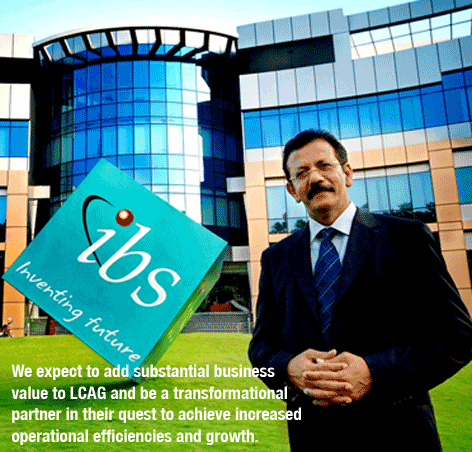 "To
be chosen
by an
iconic
airline
like
Lufthansa
is a
significant
step
in our
endeavor
to make
iCargo
the
No.1
air
cargo
management
solution
in the
world,”
said
a justifiably
proud
V.K.
Mathews,
Executive
Chairman,
IBS
Group
from
Trivandrum,
speaking
about
the
recent
contract
with
Lufthansa
Cargo
AG (LCAG),
the
airline
cargo
service
provider
in the
Lufthansa
Group. "To
be chosen
by an
iconic
airline
like
Lufthansa
is a
significant
step
in our
endeavor
to make
iCargo
the
No.1
air
cargo
management
solution
in the
world,”
said
a justifiably
proud
V.K.
Mathews,
Executive
Chairman,
IBS
Group
from
Trivandrum,
speaking
about
the
recent
contract
with
Lufthansa
Cargo
AG (LCAG),
the
airline
cargo
service
provider
in the
Lufthansa
Group.
He
went
on to
tell
ACNFT:
“We
expect
to add
substantial
business
value
to LCAG
and
be a
transformational
partner
in their
quest
to achieve
increased
operational
efficiencies
and
growth.”
The
partnership
between
the
Indian
IT major
and
Lufthansa
was
a testimony
to the
Indian
company’s
capability,
professionalism,
and
commitment
to support
the
requirements
of global
organizations.
To top
it all,
IBS
has
proved
to all
that
its
disciplined
business
practices
were
one
of the
major
issues
that
prompted
Lufthansa
to choose
its
services.
“It
is indeed
a defining
moment
for
IBS
and
heralds
the
beginning
of a
long
and
productive
business
relationship,"
commented
Mathews.
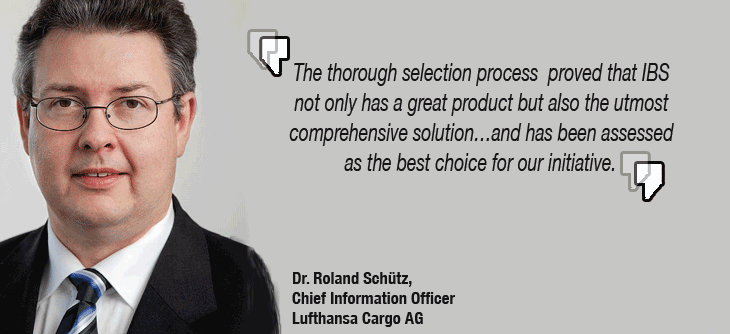 |
IBS’
contract
with
Lufthansa
Cargo
is for
the
implementation
of the
iCargo
solution
that
will
manage
the
airlines'
entire
air
cargo
movement
worldwide.
The
contract,
one
of the
largest
IT system
deals
by the
Lufthansa
Group,
will
end
the
legacy
Unisys
based
MOSAIK
application
that
the
carrier
has
been
using
for
the
last
30-odd
years.
Once
implemented,
iCargo
will
have
a user
base
of over
4,000
staff
members
and
will
interface
seamlessly
with
a host
of other
system
applications
within
the
IT landscape
of the
airline.
While
Lufthansa
Systems
will
provide
comprehensive
consulting
services
during
and
after
the
implementation
phase,
it will
also
host
the
solution
at its
own
data
center
in Kelsterbach
near
Frankfurt,
and
will
ensure
compatibility
with
the
remaining
IT landscape
of Lufthansa
Cargo.
Commenting
about
the
selection
procedure,
Dr.
Roland
Schütz,
CIO
of Lufthansa
Cargo
AG,
pointed
out
that
"the
thorough
selection
process”
(IBS
was
chosen
from
among
400
solution
providers
after
an intense
selection
process
that
began
18 months
ago)
proved
that
IBS
not
only
has
“a
great
product”
but
also
“the
utmost
comprehensive
solution…and
has
been
assessed
as the
best
choice
for
our
initiative.”
Dr.
Schütz
also
said
“the
clear
differentiator
is the
state
of the
art
architecture/technology
as well
as the
skilled
employees.”
What
ensured
the
nod
from
Lufthansa
for
IBS
was
the
fact
that
iCargo
was
unique
“in
offering
consistent
process
support
with
its
single
platform,
ranging
from
sales
processes
to handling
as well
as ULD
management
and
up to
revenue
accounting.
This
mix
of strengths
has
clearly
convinced
us.
The
decision
is perceived
as a
major
milestone
towards
materializing
and
enabling
our
joint
visions,"
said
the
CIO.
Mathews
pointed
out
that
iCargo
would
manage
the
key
business
functions
of the
airline,
from
sales
processes
up to
the
cargo
terminal
operations
functions.
The
real
time
availability
of operational
information
through
iCargo
would
help
generate
actionable
intelligence,
which
would
improve
the
overall
utilization
of assets,
revenue
generation,
and
operational
efficiencies.
IBS
sources
said
that
more
than
20 global
airlines
depended
on iCargo
to manage
their
mission
critical
cargo
logistics,
including
All
Nippon
Airways,
British
Airways,
Qantas,
South
African
Airways,
and
Nippon
Cargo
Airlines.
Since
its
launch
in 2006,
the
application
has
emerged
as “the
most
definitive
cargo
management
IT solutions
in the
global
aviation
industry.”
According
to Mathews,
today
more
than
70 percent
of the
cargo
movement
in and
out
of Australia
is managed
by IBS’
iCargo.
Tirthankar
Ghosh
|

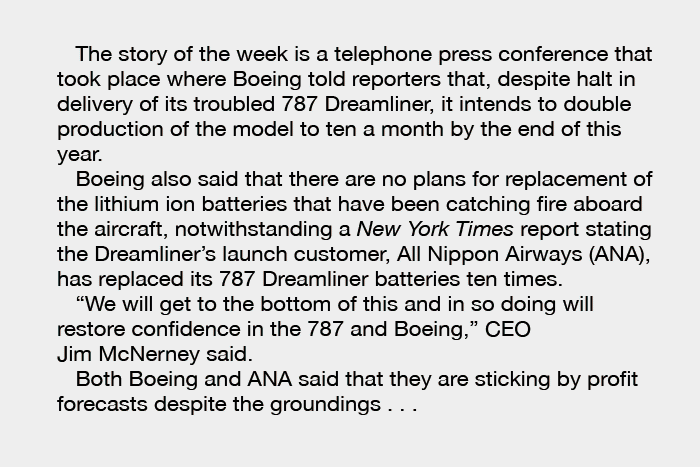
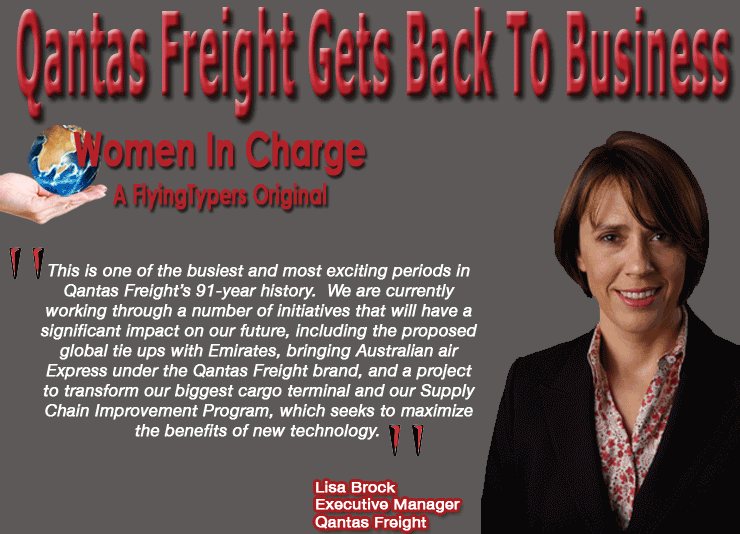







 eter
Scholten,
Saudi
Arabian
Cargo
Company
(SACC),
VP Commercial,
is one
executive
with a
lot of
ideas
and a
steely
determination
to see
things
through.
eter
Scholten,
Saudi
Arabian
Cargo
Company
(SACC),
VP Commercial,
is one
executive
with a
lot of
ideas
and a
steely
determination
to see
things
through. “In
2012,
the air
cargo
market
was tough
everywhere,
as everyone
knows.
“In
2012,
the air
cargo
market
was tough
everywhere,
as everyone
knows.

 "To
be chosen
by an
iconic
airline
like
Lufthansa
is a
significant
step
in our
endeavor
to make
iCargo
the
No.1
air
cargo
management
solution
in the
world,”
said
a justifiably
proud
V.K.
Mathews,
Executive
Chairman,
IBS
Group
from
Trivandrum,
speaking
about
the
recent
contract
with
Lufthansa
Cargo
AG (LCAG),
the
airline
cargo
service
provider
in the
Lufthansa
Group.
"To
be chosen
by an
iconic
airline
like
Lufthansa
is a
significant
step
in our
endeavor
to make
iCargo
the
No.1
air
cargo
management
solution
in the
world,”
said
a justifiably
proud
V.K.
Mathews,
Executive
Chairman,
IBS
Group
from
Trivandrum,
speaking
about
the
recent
contract
with
Lufthansa
Cargo
AG (LCAG),
the
airline
cargo
service
provider
in the
Lufthansa
Group.
